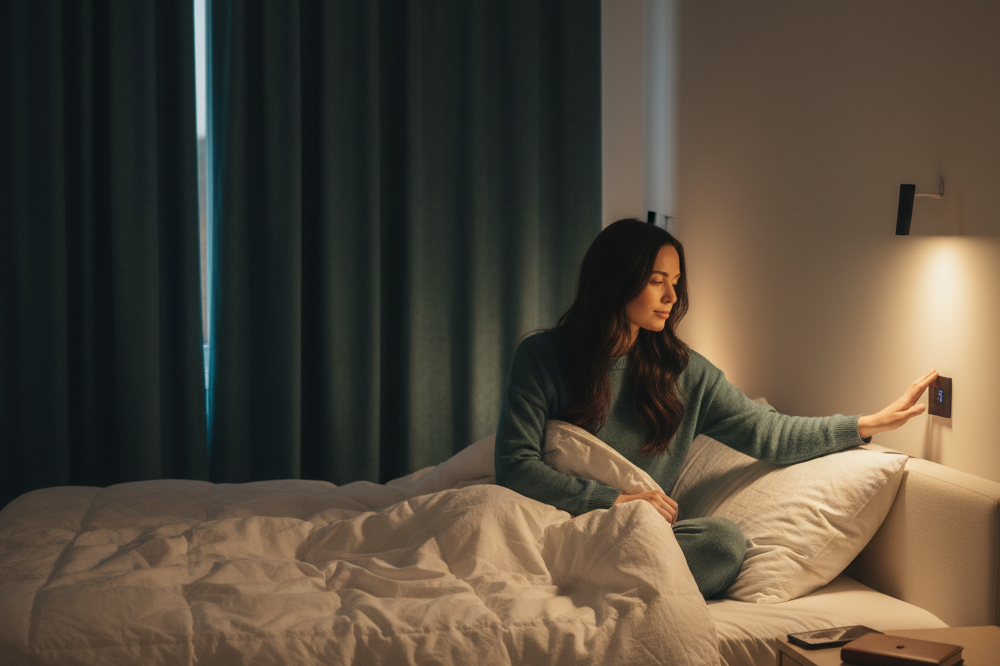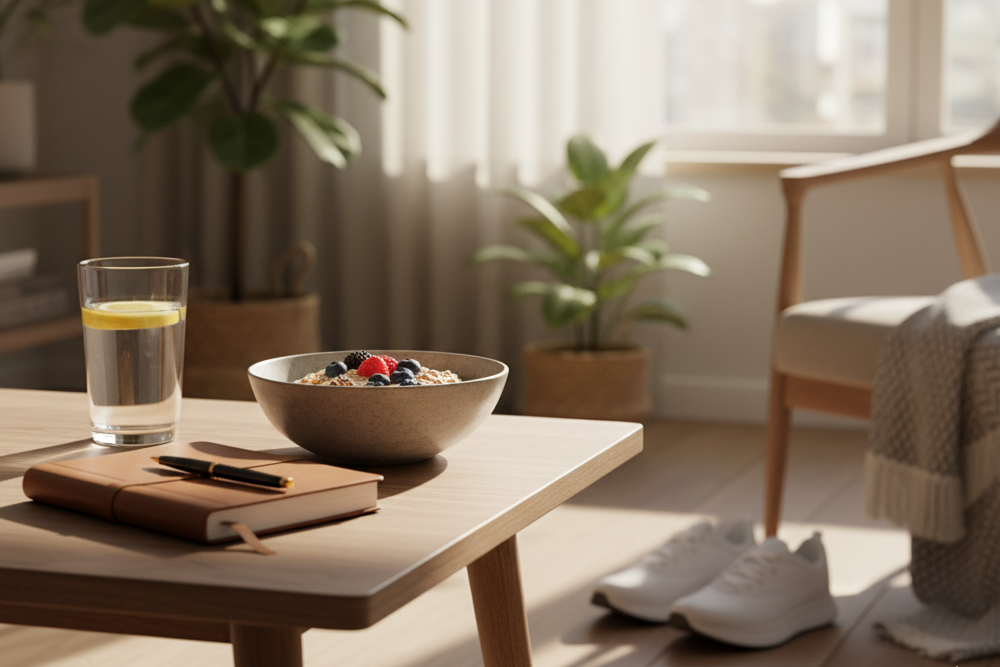Sleep Smarter: Healthy Sleep Habits to Start in 2026
Zoe Chapman
2025-09-03
6 min read

Quality sleep has become one of the most overlooked pillars of health in our modern world. While we diligently track our steps and monitor our diets, many of us fail to give our sleep the attention it deserves. As we step into 2026, it's time to prioritize rest and recovery with the same dedication we bring to other aspects of our wellness journey. The good news is that developing healthy sleep habits doesn't require expensive gadgets or complicated routines—just consistent, science-backed practices that work with your body's natural rhythms.
The Foundation: Consistent Sleep Timing
Your body operates on an internal clock called the circadian rhythm, which regulates when you feel alert and when you feel sleepy. According to the National Sleep Foundation, maintaining a consistent sleep schedule is one of the most powerful ways to improve sleep quality. This means going to bed and waking up at the same time every day, even on weekends. When you stick to a regular schedule, your body learns to anticipate sleep and wake times, making it easier to fall asleep and wake up naturally. Start by choosing a bedtime that allows for seven to nine hours of sleep and gradually adjust your current schedule by 15-30 minutes each night until you reach your target. This gradual approach helps your body adapt without the shock of sudden changes. The key is consistency across all seven days of the week. While it might be tempting to sleep in on weekends, doing so can create what researchers call "social jet lag," disrupting your circadian rhythm and making Monday mornings particularly difficult. Instead, if you need extra rest, consider going to bed slightly earlier rather than sleeping in late.
Creating Your Sleep Sanctuary
Your bedroom environment plays a crucial role in sleep quality. The American Academy of Sleep Medicine emphasizes that your sleeping space should be cool, dark, and quiet. Temperature control is particularly important—research suggests that the optimal bedroom temperature for most people falls between 65 and 68 degrees Fahrenheit. A cooler room signals to your body that it's time to sleep by triggering a natural drop in core body temperature. Darkness is equally important for quality rest. Light exposure, especially blue light from electronic devices, can suppress melatonin production and interfere with your natural sleep-wake cycle. Consider investing in blackout curtains or a sleep mask to block out external light sources. If you must use electronic devices in the evening, blue light filtering glasses or screen filters can help minimize their impact. Noise pollution can significantly disrupt sleep quality, even if you don't consciously wake up. If you can't control environmental noise, white noise machines, earplugs, or even a simple fan can help create a consistent sound environment that masks disruptive noises.
The Evening Wind-Down Ritual
Creating a relaxing bedtime routine signals to your body that sleep time is approaching. This routine should begin at least one hour before your intended bedtime and include calming activities that help you transition from the day's stresses to a peaceful state of mind. Consider incorporating gentle activities like reading a book, taking a warm bath, or practicing light stretching. The warm water from a bath or shower can help lower your body temperature afterward, mimicking the natural temperature drop that occurs before sleep. Avoid stimulating activities like intense exercise, work-related tasks, or emotionally charged conversations during this wind-down period. Many people find that keeping a journal or gratitude list helps clear their mind of the day's worries and anxieties. Writing down tomorrow's tasks or concerns can also help prevent your mind from racing when your head hits the pillow. This practice of "parking" your thoughts on paper allows you to acknowledge them without letting them interfere with your sleep.

Managing Light Exposure Throughout the Day
Your sleep quality is influenced by your light exposure patterns throughout the entire day, not just in the evening. Getting bright light exposure in the morning helps reinforce your circadian rhythm and can improve both sleep quality and mood. Try to spend at least 15-30 minutes outside in natural sunlight within the first few hours of waking. If natural light isn't available due to weather or work schedules, consider using a light therapy lamp designed to mimic natural sunlight. These devices can be particularly helpful during darker winter months when seasonal affective patterns might disrupt your sleep-wake cycle. As evening approaches, gradually dim the lights in your home to help your body prepare for sleep. This doesn't mean you need to sit in darkness, but reducing the intensity and switching to warmer light sources can support your natural melatonin production.
Nutrition and Sleep Connection
What and when you eat can significantly impact your sleep quality. Large meals, spicy foods, and excessive fluids close to bedtime can cause discomfort and frequent wake-ups. The National Sleep Foundation recommends finishing your last large meal at least three hours before bedtime to allow for proper digestion. Caffeine, found in coffee, tea, chocolate, and some medications, can stay in your system for six to eight hours. This means that afternoon coffee could still be affecting your ability to fall asleep at night. If you're sensitive to caffeine, consider cutting off consumption after 2 PM or switching to decaffeinated options in the afternoon. While alcohol might initially make you feel drowsy, it actually disrupts sleep quality by interfering with REM sleep and causing more frequent awakenings throughout the night. If you choose to drink alcohol, try to finish at least three hours before bedtime to minimize its impact on your rest.
Stress Management for Better Sleep
Stress and anxiety are among the most common culprits behind poor sleep quality. Racing thoughts, worry, and physical tension can make it nearly impossible to fall asleep or stay asleep throughout the night. Developing effective stress management techniques is essential for improving your sleep. Progressive muscle relaxation involves tensing and then releasing different muscle groups throughout your body, helping to release physical tension while focusing your mind on the present moment. Deep breathing exercises can also activate your body's relaxation response and quiet mental chatter. Regular daytime stress management practices like meditation, yoga, or even short walks can improve your overall stress resilience and make it easier to unwind at bedtime. The key is finding techniques that work for you and practicing them consistently, both during stressful periods and as preventive measures. As we embrace 2026, remember that developing healthy sleep habits is a gradual process that requires patience and consistency. Start by implementing one or two changes rather than trying to overhaul your entire routine at once. Quality sleep isn't a luxury—it's a necessity for optimal health, productivity, and happiness. By prioritizing these evidence-based sleep strategies, you're investing in better days ahead, one good night's rest at a time.



